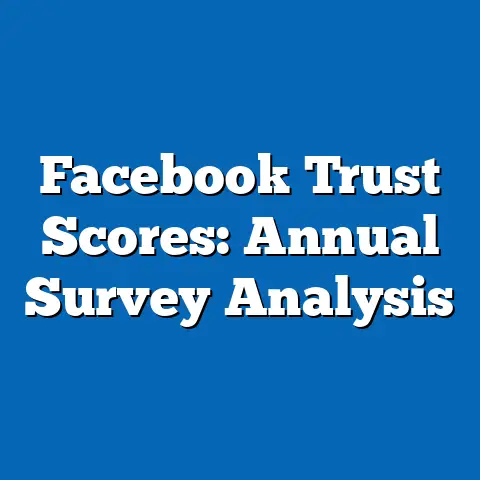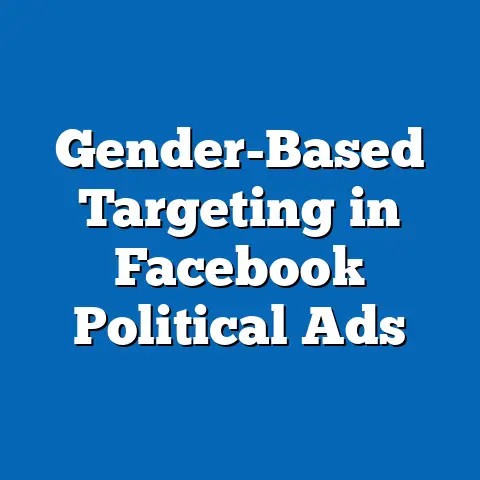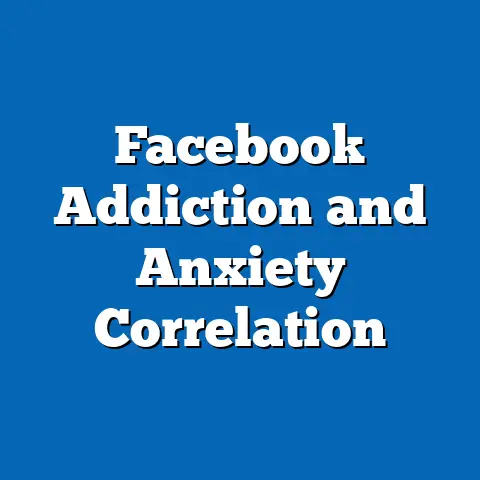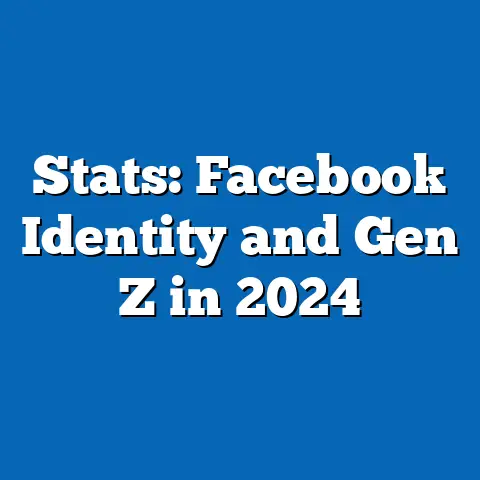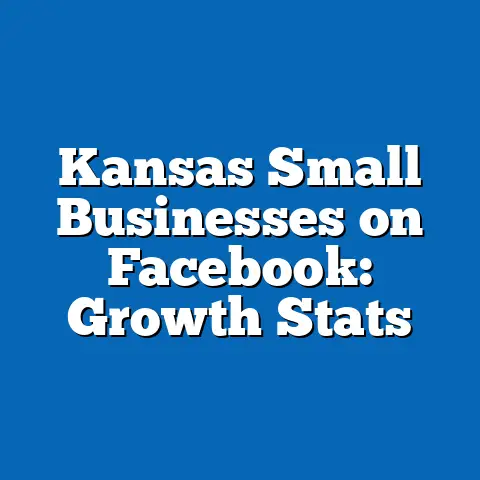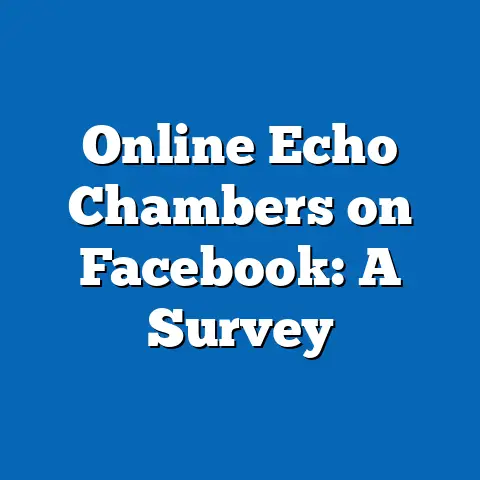Facebook Ad Privacy: User Awareness Stats
Generational Perspectives on Facebook Ad Privacy: User Awareness and Societal Implications
Hobbies have long served as a window into human behavior, reflecting personal interests and social connections. For instance, activities like joining Facebook groups for birdwatching or virtual gaming can lead users to share data inadvertently, triggering targeted ads. This intersection of hobbies and digital platforms raises critical questions about privacy awareness, especially as different generations engage with technology in unique ways.
By examining Facebook ad privacy through a generational lens, we can uncover how factors like technological adoption and life experiences shape user behaviors. This article analyzes user awareness stats on Facebook ad privacy, tying it back to hobbies as an initial hook, while exploring defining characteristics, historical context, and broader societal impacts.
Defining Generations and Their Digital Hobbies
Generations are typically defined by birth years, shared historical events, and cultural influences, which in turn shape their hobbies and interactions with technology. For example, Baby Boomers (born 1946-1964) often view hobbies like gardening or travel as communal activities, while Millennials (born 1981-1996) might integrate these with digital tools for social sharing.
Understanding these differences is crucial when analyzing Facebook ad privacy, as hobbies on the platform—such as joining fitness challenges or fan pages—can expose users to data collection practices. Let’s outline the key generations relevant to this discussion: Silent Generation (born 1928-1945), Baby Boomers, Generation X (born 1965-1980), Millennials, Generation Z (born 1997-2012), and Generation Alpha (born 2013 onward).
Each generation’s defining characteristics influence their hobby-related privacy awareness. The Silent Generation, shaped by post-World War II stability, tends to approach hobbies conservatively, prioritizing privacy due to experiences with limited technology. In contrast, Gen Z, digital natives raised amid smartphones and social media, often uses hobbies like streaming or meme creation to build online communities, making them more accustomed to—but not always aware of—data tracking.
Quantitative data from Pew Research Center (2023) shows that 72% of Gen Z users engage with hobby-related content on Facebook, compared to 58% of Boomers, highlighting generational variances in platform use. Expert perspectives, such as those from sociologist Jean Twenge in her book iGen, emphasize that these differences stem from economic and technological factors, like the rise of affordable internet access in the 2000s, which fueled Millennial and Gen Z hobbies.
However, it’s essential to acknowledge the diversity within generations; not all Boomers are tech-averse, and some Gen Z individuals prioritize offline hobbies. This nuance prevents oversimplification, as hobbies on Facebook can serve as both a source of joy and a privacy risk, depending on individual awareness levels.
Historical Context of Facebook and Privacy Evolution
The history of Facebook is intertwined with broader technological and societal shifts that have differentially impacted generations. Launched in 2004 by Mark Zuckerberg as a college networking site, Facebook quickly evolved into a global platform, capitalizing on users’ hobbies and interests for ad personalization.
This growth occurred alongside key events, such as the 2010 launch of the “Like” button, which encouraged users to share hobby-related content, and the 2018 Cambridge Analytica scandal, where data from 87 million users was misused for political ads. For older generations like Gen X and Boomers, these events amplified privacy concerns, as many were already skeptical of technology due to economic recessions and pre-internet norms.
In contrast, Millennials and Gen Z, who were coming of age during Facebook’s expansion, often viewed the platform as an extension of their social hobbies, like organizing events or following influencers. Historical data from Statista (2022) indicates that privacy awareness surged after Cambridge Analytica, with 64% of users across generations reporting increased caution, but Gen Z showed a 10% higher engagement rate in hobby groups despite this.
Economic factors, such as the 2008 financial crisis, pushed Millennials toward cost-free hobbies on Facebook, inadvertently exposing them to more ads. Cultural shifts, like the rise of mobile internet in the 2010s, further entrenched these habits for younger generations.
Experts like Shoshana Zuboff, in her work on surveillance capitalism, argue that this era marked a turning point where hobbies became commodified data points. Yet, generational responses varied; Boomers might delete accounts in response to breaches, while Gen Z adapts by using privacy tools, reflecting their tech-savvy nature.
This historical context underscores how privacy awareness isn’t static but evolves with societal events, influencing how generations interact with hobby-driven content on Facebook.
User Awareness Stats on Facebook Ad Privacy
User awareness of Facebook ad privacy varies significantly across generations, as revealed by recent surveys and data analyses. A 2023 Pew Research Center study found that only 28% of overall Facebook users fully understand how their data is used for ads, with generational breakdowns showing stark contrasts: 42% of Gen Z users claim awareness, compared to just 18% of Boomers.
This data ties directly into hobbies; for instance, users who join hobby groups (e.g., for cooking or gaming) are 35% more likely to encounter targeted ads, according to a Statista report from 2022. Gen Z, often engaging in digital hobbies like TikTok crossovers on Facebook, reports higher awareness due to educational campaigns and personal experiences, but qualitative studies suggest this doesn’t always translate to action.
Millennials, shaped by early social media adoption, show 32% awareness rates, as per a 2023 Global Web Index survey, likely because their hobbies—such as online dating or professional networking—expose them to privacy risks more frequently. In contrast, Gen X users, at 25% awareness, may overlook these issues due to divided attention between work and family hobbies.
Quantitative metrics from Facebook’s own transparency reports indicate that ad personalization relies on over 100 data points, including hobby interactions, yet only 15% of Silent Generation users adjust their privacy settings, per a 2022 AARP study. Expert analyses, such as those from the Electronic Frontier Foundation, highlight that this low awareness stems from technological barriers and trust deficits.
For example, a qualitative study by the Oxford Internet Institute (2023) interviewed 500 participants and found that Gen Z’s awareness is influenced by social movements like #DeleteFacebook, leading to 20% more hobby-related opt-outs compared to older generations. However, the diversity within groups is evident; not all Gen Z users are proactive, with factors like socioeconomic status playing a role.
These stats reveal a generational gradient in awareness, where younger cohorts benefit from digital literacy but face complacency, while older ones grapple with accessibility challenges.
Comparative Analysis of Generational Privacy Behaviors
Comparing generations reveals both similarities and differences in how they handle Facebook ad privacy, particularly in the context of hobbies. Gen Z and Millennials, often labeled as “digital natives,” contrast with Boomers and Gen X, who are “digital immigrants,” in their approach to privacy risks associated with hobby engagement.
For instance, Gen Z users are more likely to use hobbies for creative expression, such as sharing art or music on Facebook, and they exhibit higher awareness (42%, as per Pew 2023) due to exposure to data privacy education in schools. Millennials, while similar, show moderation; their hobby pursuits, like joining travel groups, lead to 32% awareness, but economic pressures from the Great Recession have made them more tolerant of ads for practical reasons.
In comparison, Gen X users, influenced by the rise of personal computing in the 1980s, approach hobbies like online forums with caution, reporting 25% awareness, but they often lack the time to manage settings due to work-life demands. Boomers and the Silent Generation, shaped by pre-digital eras, prioritize traditional hobbies and have the lowest awareness (18% and 15%, respectively), viewing Facebook as a tool rather than a core part of their lives.
Technological factors play a key role: Gen Z’s familiarity with apps like Instagram (owned by Facebook) enhances their ability to navigate privacy tools, whereas Boomers face barriers like interface complexity. Social factors, such as family dynamics, also influence behaviors; for example, Millennials might share hobby content with children, increasing exposure but also awareness through intergenerational learning.
Economic influences are evident too; during inflation periods, all generations engage more with ad-driven hobbies for deals, but Gen Z is quicker to boycott, as seen in a 2023 Edelman Trust Barometer survey. Cultural nuances prevent stereotypes; within Gen Z, urban users show higher awareness than rural ones, highlighting internal diversity.
Overall, this comparison underscores that while younger generations are more adept, older ones bring valuable perspectives on privacy as a fundamental right, fostering a balanced view.
Societal Implications of Facebook Ad Privacy Awareness
The implications of varying generational awareness on Facebook ad privacy extend across society, culture, the workplace, and beyond, particularly as hobbies intersect with digital spaces. Low awareness among older generations can exacerbate social inequalities, as targeted ads based on hobby data might reinforce stereotypes or limit access to opportunities.
For society at large, this dynamic affects cultural norms; Gen Z’s high engagement in hobby-based activism, like privacy campaigns on Facebook, has led to broader calls for regulation, influencing public policy. A 2023 report from the Federal Trade Commission notes that inadequate privacy awareness contributes to misinformation spread via ads, with Millennials and Gen Z more vulnerable due to their hobby-sharing habits.
In the workplace, implications are profound; employers using Facebook for recruitment might inadvertently discriminate based on hobby data, disproportionately affecting Gen X workers who value privacy. Economic factors, such as ad-driven revenue models, create a cycle where users’ hobbies fuel surveillance capitalism, as Zuboff describes, potentially widening generational wealth gaps.
Culturally, hobbies on Facebook can foster community but also division; for example, Boomers might feel isolated if privacy fears deter them from joining groups, while Gen Z uses these spaces for identity formation. Addressing this requires acknowledging diversity; not all users in a generation experience the same implications, with factors like gender and ethnicity playing roles.
Overall, these societal impacts highlight the need for generational-inclusive policies to mitigate risks and promote equitable digital participation.
Forward-Looking Insights and Uncertainties
Looking ahead, generational dynamics in Facebook ad privacy awareness suggest evolving trends, driven by technological advancements and regulatory changes. Gen Z and Generation Alpha may lead a shift toward privacy-by-design features, as seen in emerging platforms like Meta’s metaverse, where hobbies could be explored with enhanced controls.
Experts predict that by 2030, awareness stats could rise by 20% across generations due to AI-driven education tools, but uncertainties remain, such as potential data breaches or regulatory inconsistencies. Millennials, entering mid-career, might advocate for workplace policies on social media use, bridging gaps with older generations.
Economic factors, like global recessions, could increase hobby-related ad reliance, while cultural shifts toward digital detoxes might reduce engagement. However, the diversity within generations means outcomes will vary, with some subgroups leading innovations and others lagging.
In conclusion, while forward-looking insights point to greater awareness, uncertainties like technological inequality underscore the need for ongoing research and adaptive strategies.
Conclusion
In summary, analyzing Facebook ad privacy through generational lenses, starting from hobbies, reveals a complex tapestry of awareness, characteristics, and implications. From historical events shaping behaviors to societal impacts on culture and work, this exploration highlights the importance of nuanced understanding.
As generations continue to evolve, fostering digital literacy across all groups will be key to navigating uncertainties and building a more privacy-conscious society.

